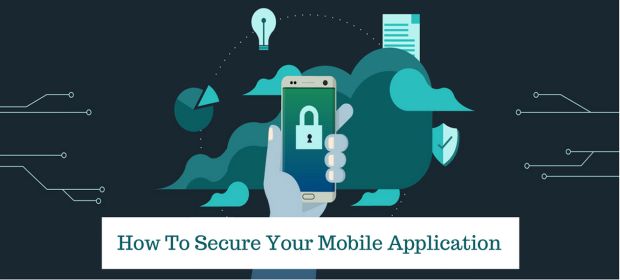5 Tips To Ensure Robust Security Of Your Mobile App
The increasing usage of mobile apps has opened up many opportunities for enterprises. But along with the opportunities come inherent security risks that the enterprises should never overlook or underestimate. Gartner predicts that "By 2017, 75% of mobile security breaches will result from mobile app misconfiguration.
Considering the consequences of security attacks, developers must take right measures to defend their applications against them. As no mobile device or operating system offers complete safety, a single mistake can result in critical data leakage, which can even bring down a business in no time. So, go through the following tips to prepare your mobile app for the evolving mobile app threats on the horizon.

Tips To Safeguard Apps From Mobile Security Threats:
- Encrypt your Source Code:
Bugs and vulnerabilities within your mobile app’s source code may lead to a security attack. With the help of malicious code, attackers often repackage the ‘Popular Apps’ into ‘Rogue Apps’ and then publish them. This can ultimately infect a million devices at any given time. This is why encrypting your app source code is important. If your application is built on a language which is easy to read, obfuscate it to make it difficult for attackers to read or interpret. However, encrypting it will assure that your source code remains inaccessible. In case of iOS, Apple already provides
built-in encryption for
building custom iOS application. But you can even implement other available encryption techniques in iOS to encrypt the user data.
- Understand Platform Specific Limitations:
If you are developing an app to work on multiple mobile operating systems, make sure you understand security features and restrictions specific to each platform. Consider various use case scenarios, password support, encryption support, and geo-location support for each operating system to control and distribute your app on the chosen platforms appropriately.
- Make Provisions for Data Security:
When an application accesses the confidential data of an enterprise, the unstructured information is usually stored in the device storage. Use mobile data encryption to effectively secure the data in the storage with SQLite Database Encryption Modules or file-level encryption across multiple mobile operating systems.
- Secure the Backend:
Most of the backend APIs (Application Programming Interface) assume that an app which has been written to access it can only interact with it. But to safeguard the app against malicious attacks, backend servers must have security measures in place. However, as API authentication and transport mechanisms differ from platform-to-platform, you must ensure that all the APIs are verified on the basis of the operating systems you choose to code for.
- Perform In-depth QA & Security Check:
Before deploying your application, test it against the randomly generated security scenarios. You can even take help of a hacker to identify the security backdoors within your application. Microsoft and Google put up Hackathons where hundreds and thousands of hackers participate and find out the security issues in an application for a prize money. But if you develop apps independently, you must go through the documentation in detail and if required seek help from an outsider to find out the hidden backdoors within your app.
Implementing these tips can secure your app against mobile malware and lead to end-user satisfaction driving better business prospects for you. What techniques do you implement to secure your mobile app? Share with us using the comment box below.

